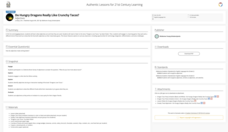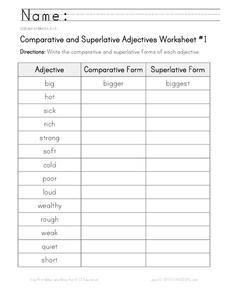Core Knowledge Foundation
Third Grade Skills Unit 11: Introduction to Ecology
The concluding skills unit offers learning opportunities and reviews in preparation for assessments. Scholars participate in lessons that examine spelling patterns, prefixes, suffixes, pronouns, and adjectives, draft a letter, and listen...
Core Knowledge Foundation
Third Grade Skills Unit 10: Living in Colonial America
Over three weeks, third graders participate in lessons designed to boost spelling and grammar skills—adjectives, adverbs, and pronouns—and prefixes. Readings are themed to share stories about Colonial America.
Core Knowledge Foundation
Third Grade Skills Unit 9: The Age of Exploration
The Age of Exploration is the theme of a unit designed to boost third-grade ELA skills. Scholars practice spelling patterns, examine words with prefixes and suffixes, build sentences with linking words, and use comparative and...
Core Knowledge Foundation
Third Grade Skills Unit 1: Classic Tales
A unit focusing on third-grade skills explores spelling patterns, conducts a read-aloud, practices reading comprehension, and administers assessments for baseline information.
GLSEN, Inc.
Ready, Set, Respect!
Instill the importance of respect in your classroom with a comprehensive unit that focuses on positive behavior in and outside of school. Three parts, each separated into four grade-specific lessons, cover bullying, bias, name-calling,...
K20 LEARN
Do Hungry Dragons Really Like Crunchy Tacos?: Adjectives
Tacos are the theme of a lesson plan all about adjectives. Scholars list as many adjectives as possible to describe tacos and play a game of Not Like the Others before reading Dragons Love Tacos by Adam Rubin. Peers guess their favorite...
K12 Reader
Christmas Tree Add an Adjective
The star on the top of a Christmas tree can be beautiful, or it can be gold, or it can be shiny—or, in fact, it can be all three! A picture of a decorated Christmas tree encourages pupils to choose from a list of 18 adjectives to...
K12 Reader
Comparatives and Superlatives: Halloween Edition
What's the spookiest thing about Halloween? Which haunted house is ghostlier than the others? A list of Halloween-related adjectives await your elementary learners, along with columns to write the comparative and superlative forms of each.
Curriculum Corner
Earth Day Book
This Earth Day, celebrate our beautiful planet with an activity book that challenges scholars to show off their map skills, complete a crossword puzzle, write acrostic poems, alphabetize, and reflect on their personal Earth-friendly habits.
Houghton Mifflin Harcourt
Smart Solutions: English Language Development Lessons (Theme 6)
Smart Solutions is the theme of a unit created to meet the needs of English language earners. Through a series of lessons, scholars follow a routine—move, speak, and listen— to cover topics including stores, shops, celebrations, pets,...
Student Handouts
Comparative and Superlative Adjectives Worksheets
Great, greater, greatest! Invite your learners to practice their comparative and superlative adjectives with these grammar worksheet.
K12 Reader
Identifying Adjectives
Support your bright young grammarians with identifying adjectives using these simple, yet effective skills practice worksheets. Presenting with a series of 18 sentences children are asked to first circle the adjective and then write down...
K12 Reader
Comparative & Superlative Practice II
Grammar practice gets good, better, and best! Choose when to use comparative and superlative forms of various adverbs in 12 sentences. Examples at the top of the page guide kids to select the best form based on how many people or items...
K12 Reader
Comparative & Superlative Practice
When should you use more and most when writing adverbs? Practice comparative and superlative adverbs with a review worksheet. After reading through the information at the top of the page, kids decide if they should use the comparative or...
K12 Reader
Identifying Adverbs IV
What a mess! Read about Lilly-Ann's birthday cupcake surprise and work on grammar skills at the same time. Four lengthy paragraphs provide kids with many opportunities to find and circle adverbs. They note the ways that adverbs come in...
K12 Reader
Identifying Adverbs III
Put young grammarians to the test with an activity about adverbs. A five-paragraph passage prompts kids to find the adverbs and circle them, noting their purpose in context.
K12 Reader
Identifying Adverbs II
Investigate the impact and function of adverbs with a grammar worksheet. Kids look for the adverbs and adverbial phrases in 15 sentences, and then underline the verbs that the adverb modifies.
K12 Reader
Adverbs of Frequency II
Describe your daily activities with adverbs of frequency. Kids recall which things they seldom do, they rarely do, they frequently do, and the things that they never do.
K12 Reader
Working with Adverbs
Encourage critical thinking with a grammar exercise that focuses on adverbs and adverbial phrases. Kids read the first parts of 16 sentences, then decide which question to answer (how, how much, where, or when) based on the context, and...
K12 Reader
Identifying Adverbs
Work on adverbs and adverbial phrases with a grammar worksheet. After reading 15 sentences with adverbs, learners circle the adverbs and adverbial phrases and note what question they are answering (when, how, where, and how much).
K12 Reader
Adverbial Phrases
What is the purpose of adverbial phrases? Find out what questions adverbial phrases answer with a activity that focuses on grammar. As kids work through 16 sentences, they underline the phrases and use the space provided to mark what...
K12 Reader
Comparative Adverbs
Show the comparative forms of adverbs with a straightforward worksheet. Learners decide how to represent 16 adverbs in both comparative and superlative forms.
K12 Reader
Adjectives to Adverbs
Create new adverbs with a list of adjectives. After reviewing how to add -ly to words that end in consonants, as well as words that end in vowels, kids work through 16 adjectives.
K12 Reader
Questioning Adverbs
How do adverbs enhance the meanings of verbs? Use a learning exercise that prompts kids to identify what question adverbs are answering: when, where, or how.

























